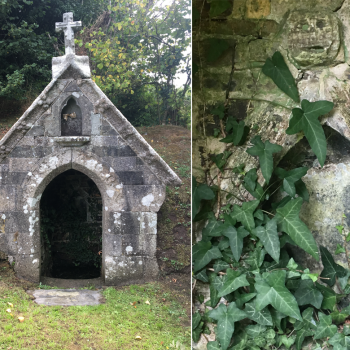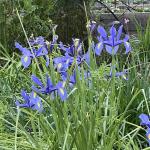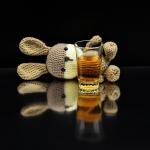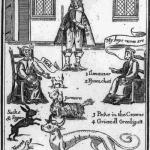It made me wonder. Looking at this from the Pagan perspective, perhaps this seemingly contradictory attitude to alcohol in Muslim cultures means that alcohol isn’t regarded as something inherently haraam (impure, forbidden). I don’t know a great deal about Islam, but I did a little research and it appears that there are Muslims who agree:
The thing that invalidates prayer is the presence of impurities on ones body or clothes. But not all haraam things in Islam are impure for example: gold and silk are declared haraam for the believing men in Islam, but gold and silk in their essence are not impure substances. Similarly, most of the scholars of Islam are of the opinion that although the consumption of alcohol is haraam and absolutely forbidden for the believers to consume, alcohol by itself is not an impure substance.
– Islamhelpline.net
I can imagine that alcohol was something respected by Muslims in ancient times for its mysterious powers as a solvent and sterilising agent. In fact, the word “alcohol” is itself an Arabic word, which originally referred to powdered cosmetics (kohl) and later came to be used to mean ethanol. Science of all kinds flourished in the medieval Islamic world, and we know that doctors of the time used alcohol as an antiseptic:
Ancient Islamic physicians attempted to prevent infection when performing procedures for a sick patient, for example by washing a patient before a procedure; similarly, following a procedure, the area was often cleaned with “wine, wined mixed with oil of roses, oil of roses alone, salt water, or vinegar water”, which have antiseptic properties.
So to use this gift of nature in such a frivolous way to get drunk, and then potentially become rude, violent or sick, could be regarded as especially abhorrent. Something so powerful and so valuable should not be treated with such carelessness and disrespect.
!["Bacchus on a Throne − Nymphs Offering Bacchus Wine and Fruit." Caesar Boetius van Everdingen [Public Domain], via Wikimedia Commons](https://wp-media.patheos.com/blogs/sites/632/2016/02/bacchus02-300x219.jpg)
The idea that alcohol is a mysterious, magical substance clearly runs deep in many cultures. While it is loved for its ability to heal, to alleviate pain, and to heighten physical and psychological pleasure, it is also regarded with caution for its effects when used irresponsibly – irrationality, aggression, impairment of judgement, addiction, sickness and death. It is powerful, and like anything powerful, it can be dangerous. The same can be said for magic, deities, and religion itself. And all things that are powerful should be treated with respect.
While I can never see myself becoming teetotal for religious reasons, learning about alcohol in Islam has made me think more deeply about the role of alcohol in my spiritual path. I now try to see my use of alcohol, whether as an offering to the deities, as a component in medicine, as a beautiful perfume, or as a recreational drink to enjoy, as an inherently sacred experience, and try to remember to be mindful and reverent to the “spirits of the spirit” when drinking.
References and Further Reading
Wikipedia: “Alcohol,” “Medicine in the ancient Islamic world,”
Islamhelpline.net
Andrew Dalby, The Story of Bacchus
James George Frazer, The Golden Bough
















